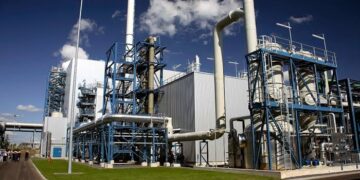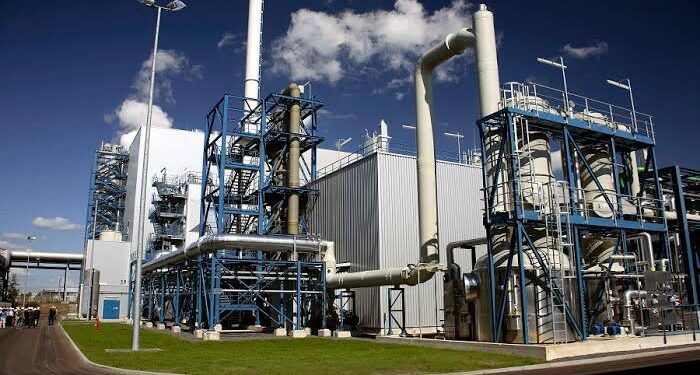By John Ikani
The Nigerian Midstream and Downstream Petroleum Regulatory Authority (NMDPRA) says Nigeria’s proven natural gas reserve has risen to 209.5tcf (209.5 Trillion Cubic Feet) as of January 1, 2022.
Farouk Ahmed, Chief Executive Officer of NMDPRA, said this at the 2022 Nigeria International Energy Summit (NIES) on Wednesday in Abuja.
Ahmed who was represented by Mr Ogbugo Ukoha, Executive Director, Distribution Systems, Storage and Retailing Infrastructure, NMDPRA, said the new figure signifies a major increase of 2.97tcf in proven natural gas reserves, representing a 1.42 percent increase from the 206.53tcf recorded on January 1, 2021.
According to him: “Nigeria is endowed with enormous petroleum resources currently put at 37 billion barrels of Crude oil reserves and 209.5 TCF of Natural Gas reserves as at January 2022.
“These resource size puts Nigeria at an enviable position within the comity of global hydrocarbon producers.
“Even in this era of global energy transition, the oil and gas sector still remains pivotal to the Nigerian economy since it provides the needed cash flow for the functioning of other sectors of the economy but for how long?”
The NMDPRA boss explained that with the global push for energy transition, Nigeria is racing against time to derive maximum value from its hydrocarbon resource and secure its energy future.
He said there was need to vigorously contemplate Nigeria’s energy strategies, which was a key tool for economic liberation and national development taking into advisement the shift in demand and clamour for cleaner fuels.
According to him, “It is imperative that going forward all stakeholders must deliberately adopt strategies that embolden and underpin these three core principles.
“Adoption of low carbon technologies across all operations in the oil and gas value chain, deepening and penetration of natural gas utilisation domestically to increase energy sufficiency and reduce energy poverty and invest conscientiously in cleaner fuels and renewables.”
He said the authority was committed to creating an enabling environment for investments in the midstream and downstream space by encouraging industry participants through its regulatory service instruments.
Meanwhile, Executive Secretary, Nigerian Content Development and Monitoring Board (NCDMB), Mr Simbi Wabote, has disclosed that Nigeria is targeting an increase in its domestic refining capacity to 1.4 million barrels per day within the next five years.
In a keynote address titled: “Competitive Landscape and Sustainable Development of In-Country Value Addition” at the 2022 NIES, Wabote said President Muhammadu Buhari rolled out the Refining Roadmap which has four areas of focus, including, rehabilitation of existing four national refineries, co-location of new refineries, construction of greenfield refineries and construction of modular refineries.



































